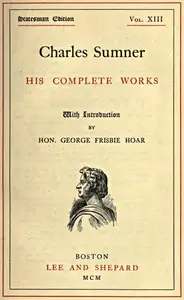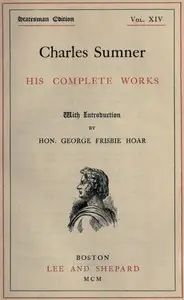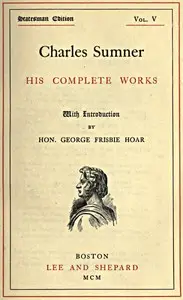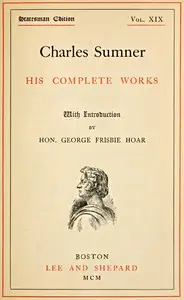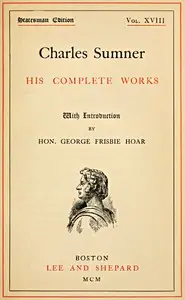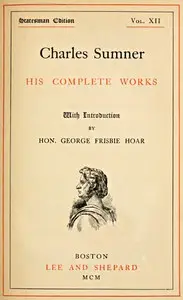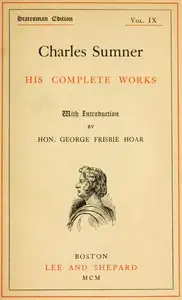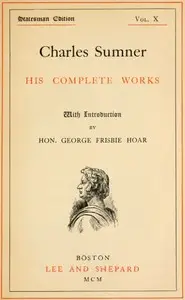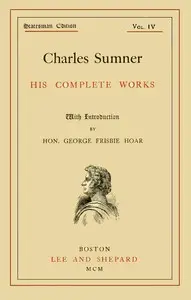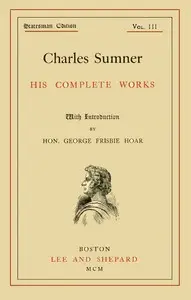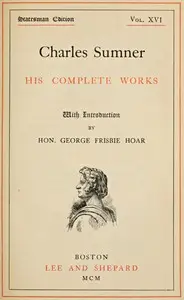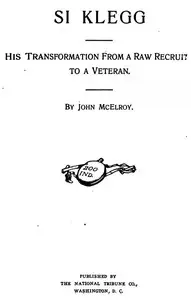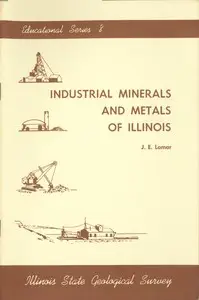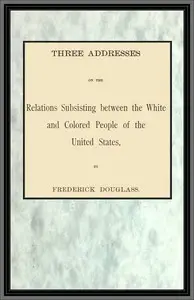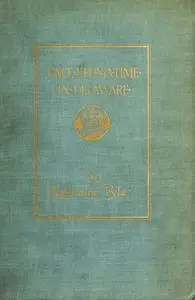"Charles Sumner: His Complete Works, Volume 11 (of 20)" by Charles Sumner is a compilation of speeches and reports chronicling the hard-fought battles for equality and justice during America's most transformative period. Within these pages, Sumner's unwavering commitment to civil rights and the eradication of slavery shines through as he dissects pivotal political and legal battles from the Civil War era and Reconstruction. The volume begins by exposing the deeply rooted issue of excluding people of color from testifying in court, revealing the discriminatory laws that denied African Americans their fundamental rights. With meticulous detail, Sumner uncovers the injustices woven into state statutes, passionately calling for legislative reforms to create a truly equitable legal system.
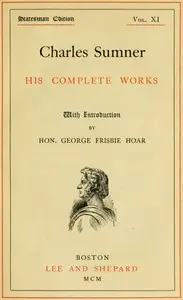
Charles Sumner: his complete works, volume 11 (of 20)
By Charles Sumner
Witness the impassioned fight for a nation's soul as one man challenges the laws that silence a people and deny them justice.
Summary
About the AuthorCharles Sumner was an American lawyer, politician, and statesman who represented Massachusetts in the United States Senate from 1851 until his death in 1874. Before and during the American Civil War, he was a leading American advocate for the abolition of slavery. He chaired the Senate Foreign Relations Committee from 1861 to 1871, until he lost the position following a dispute with President Ulysses S. Grant over the attempted annexation of Santo Domingo. After breaking with Grant, he joined the Liberal Republican Party, spending his final two years in the Senate alienated from his party. Sumner had a controversial and divisive legacy for many years after his death, but in recent decades, his historical reputation has improved in recognition of his early support for racial equality.
Charles Sumner was an American lawyer, politician, and statesman who represented Massachusetts in the United States Senate from 1851 until his death in 1874. Before and during the American Civil War, he was a leading American advocate for the abolition of slavery. He chaired the Senate Foreign Relations Committee from 1861 to 1871, until he lost the position following a dispute with President Ulysses S. Grant over the attempted annexation of Santo Domingo. After breaking with Grant, he joined the Liberal Republican Party, spending his final two years in the Senate alienated from his party. Sumner had a controversial and divisive legacy for many years after his death, but in recent decades, his historical reputation has improved in recognition of his early support for racial equality.

